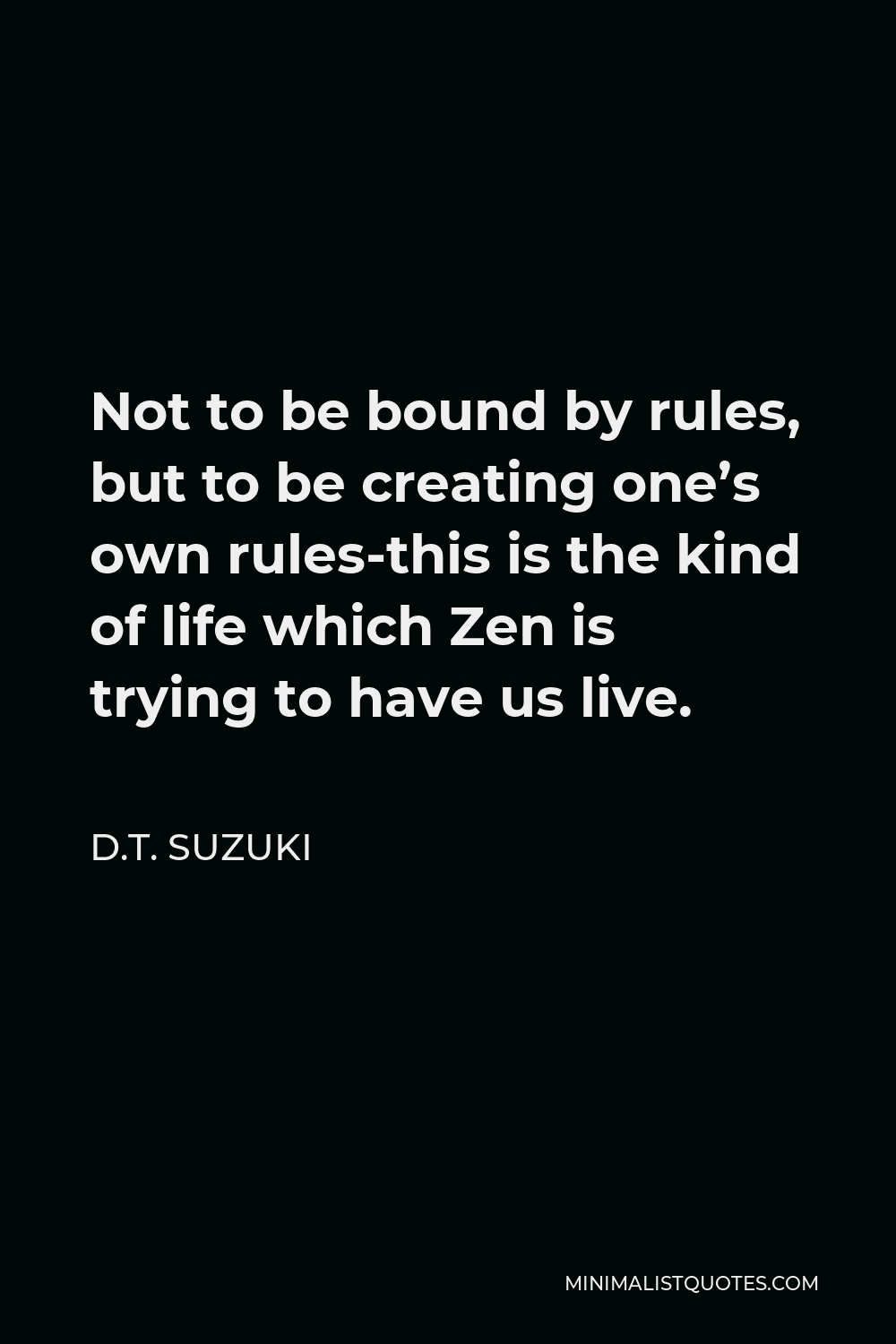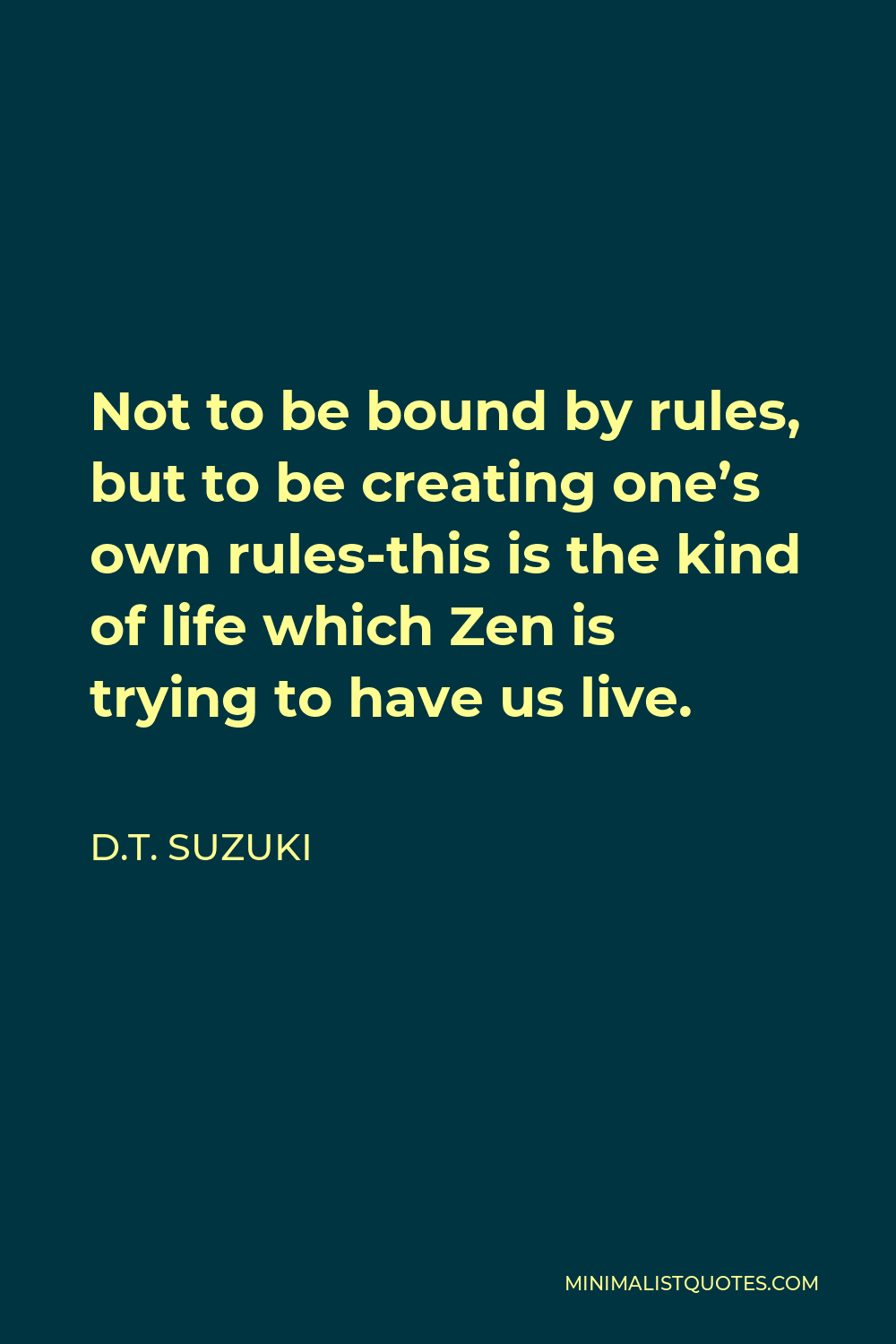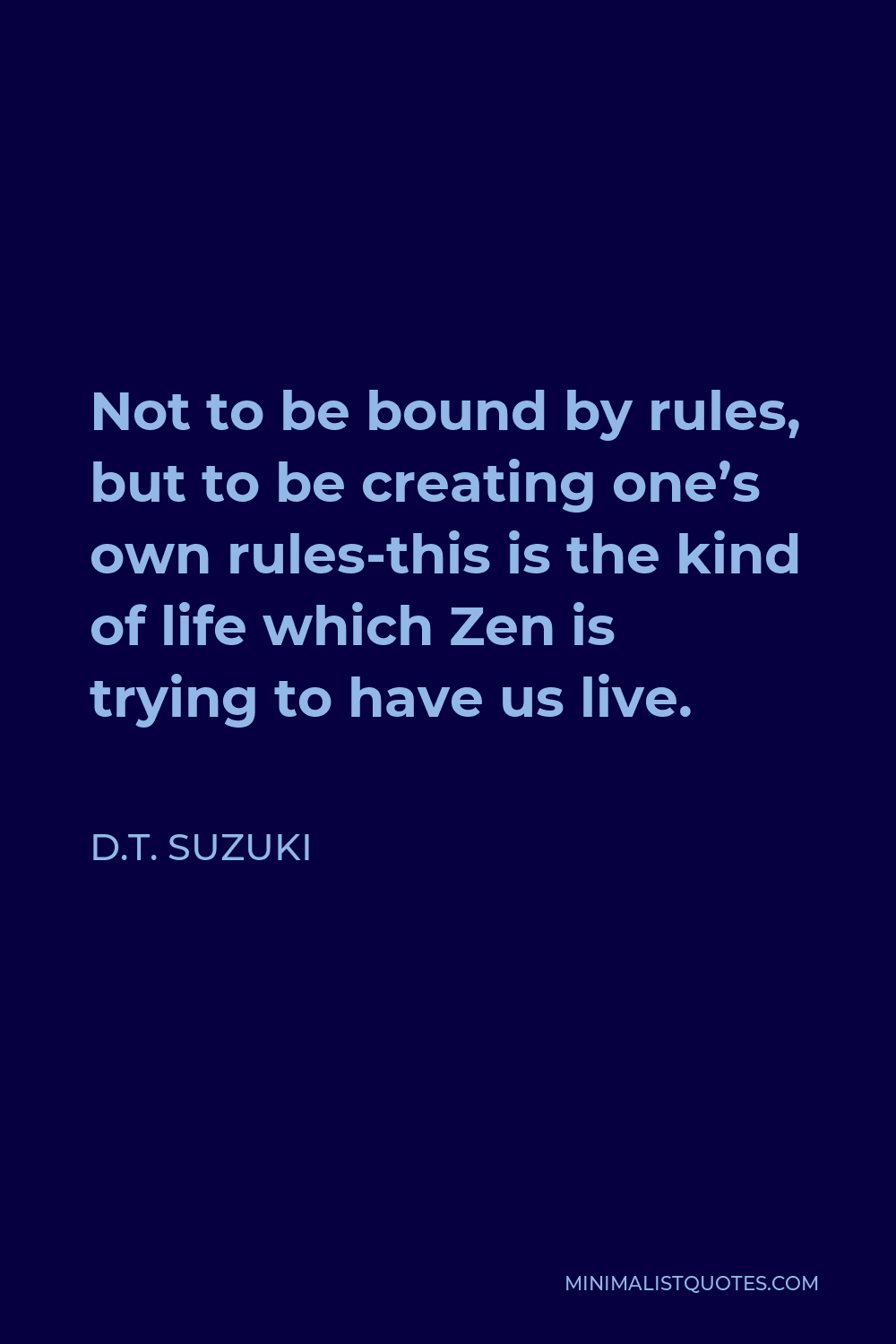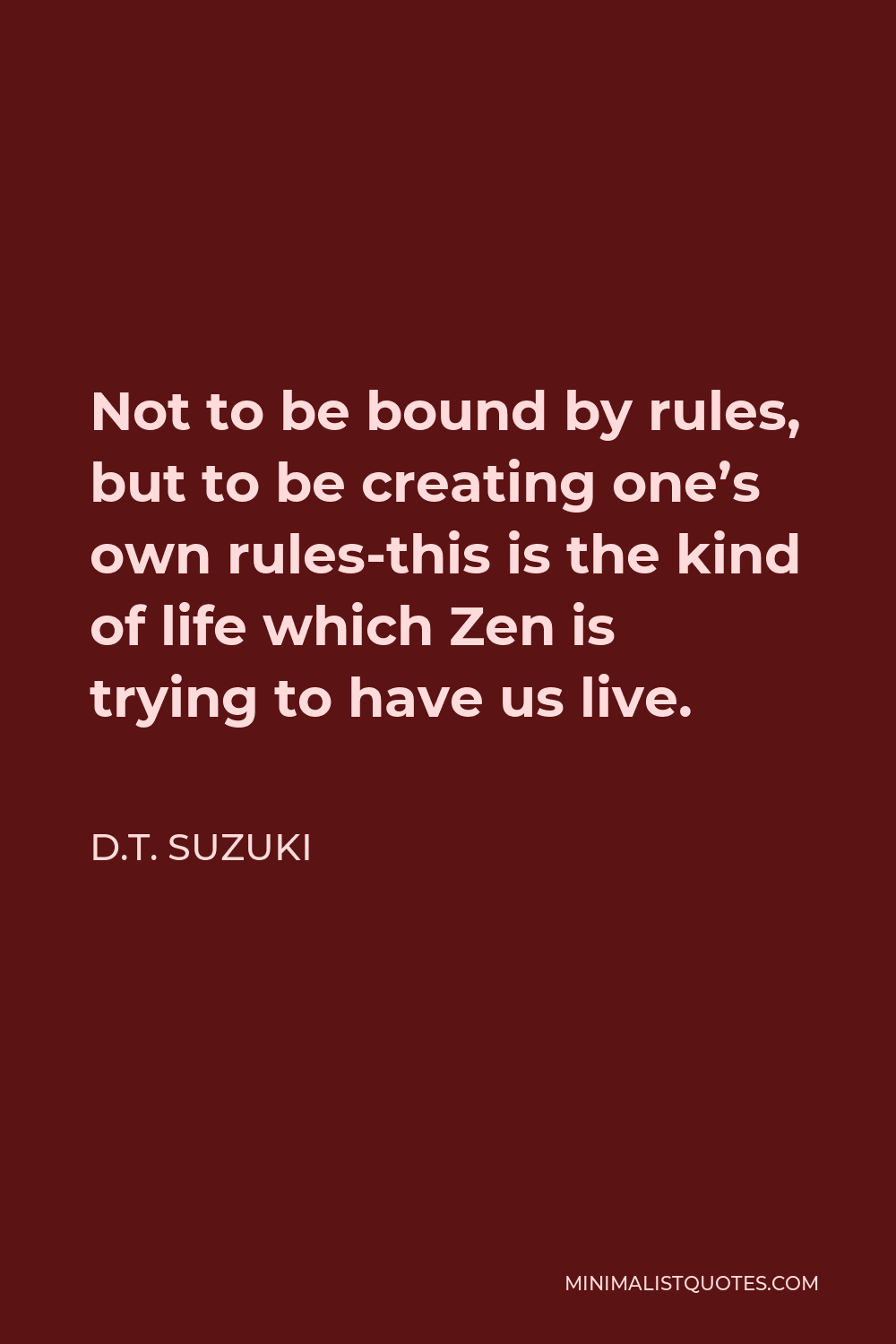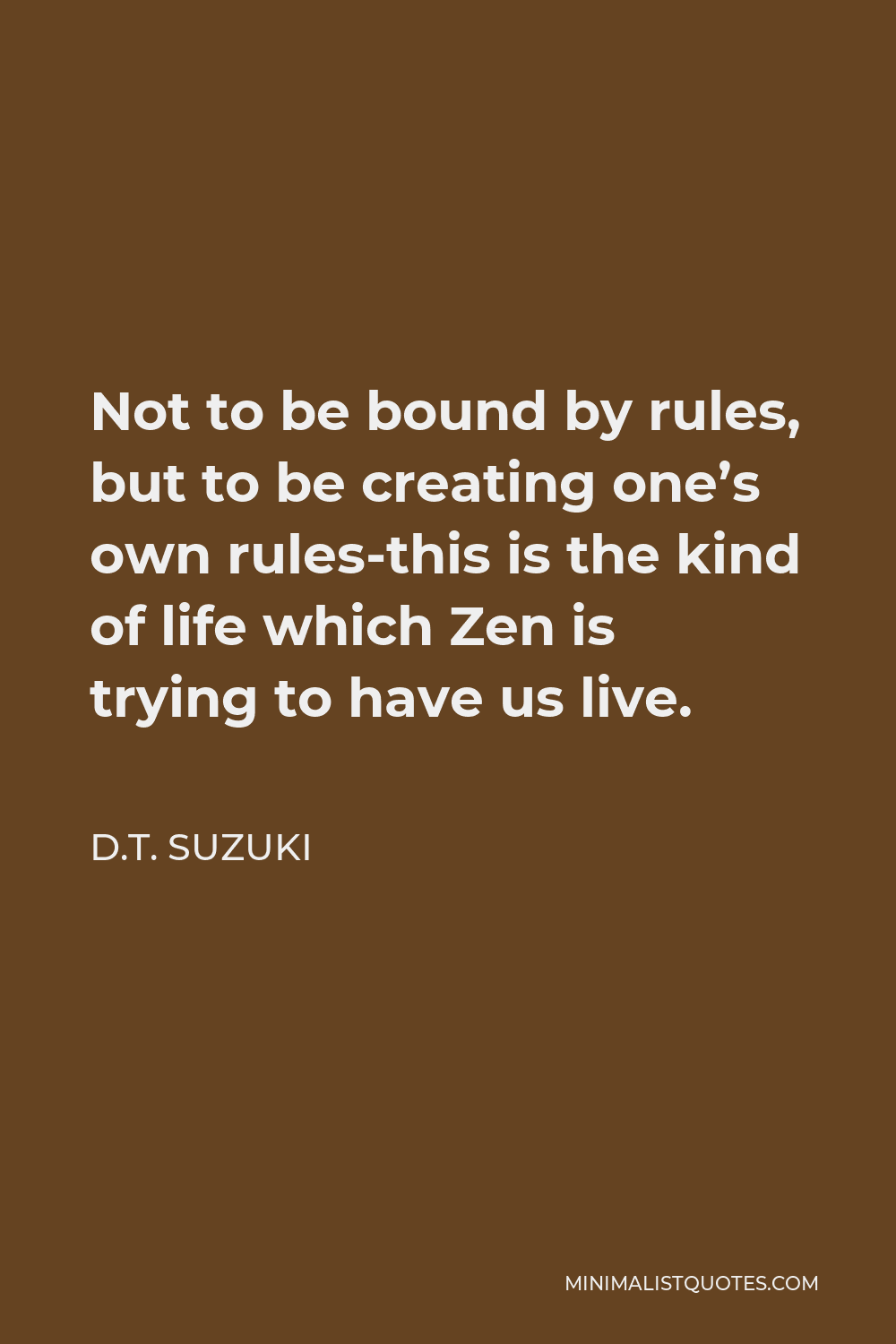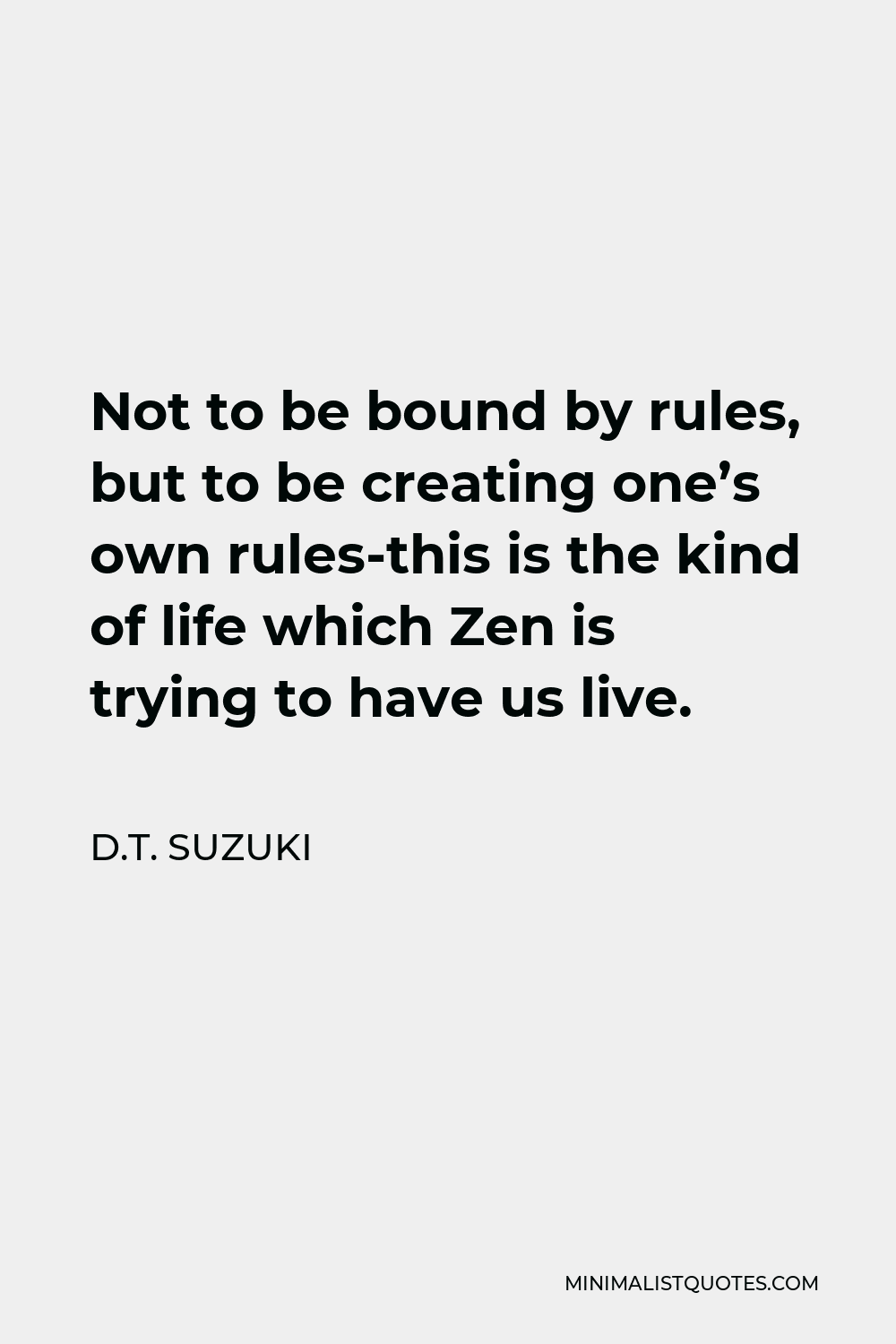Unless we agree to suffer we cannot be free from suffering.
D.T. SUZUKINot to be bound by rules, but to be creating one’s own rules-this is the kind of life which Zen is trying to have us live.
More D.T. Suzuki Quotes
-





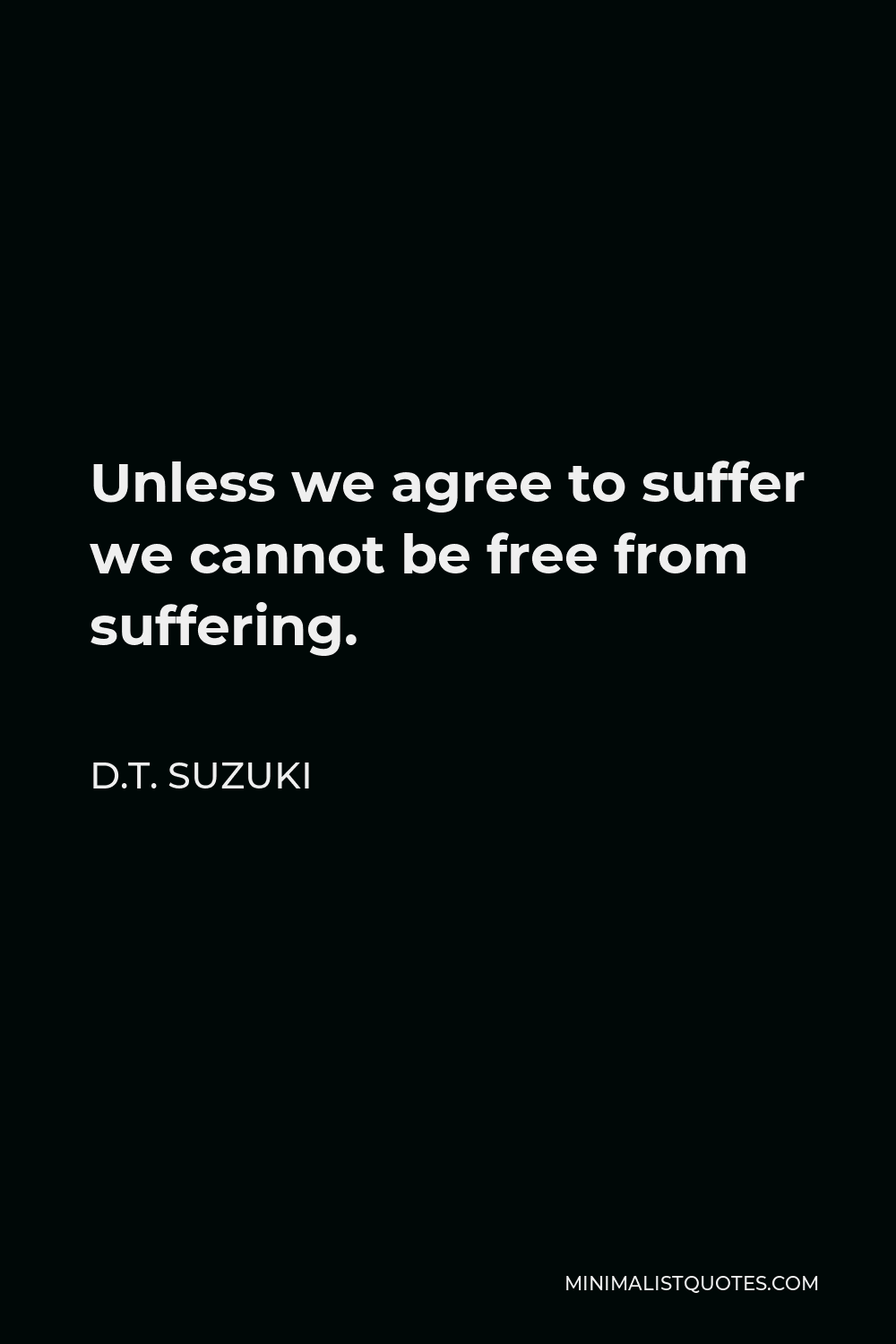
-





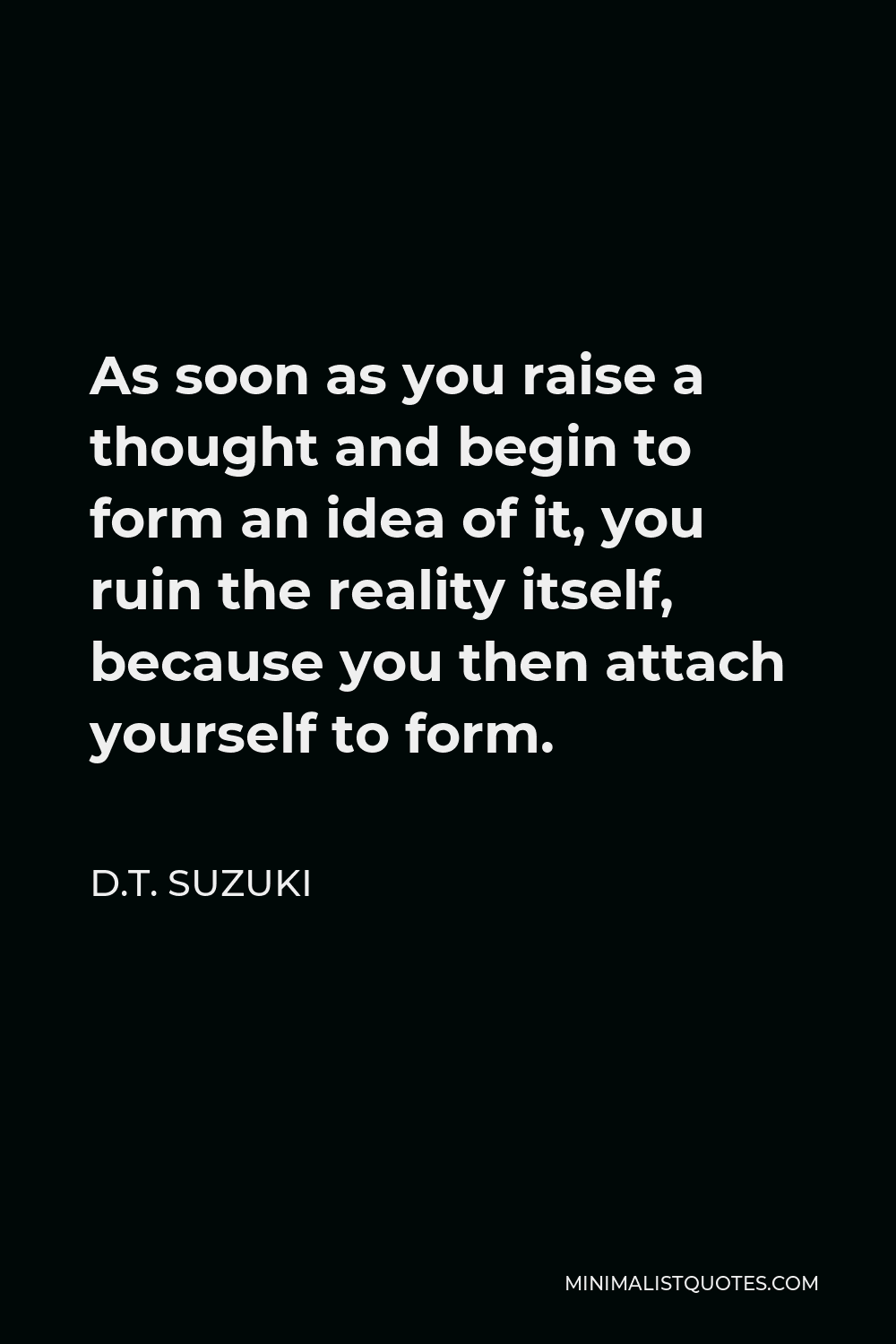
As soon as you raise a thought and begin to form an idea of it, you ruin the reality itself, because you then attach yourself to form.
D.T. SUZUKI -





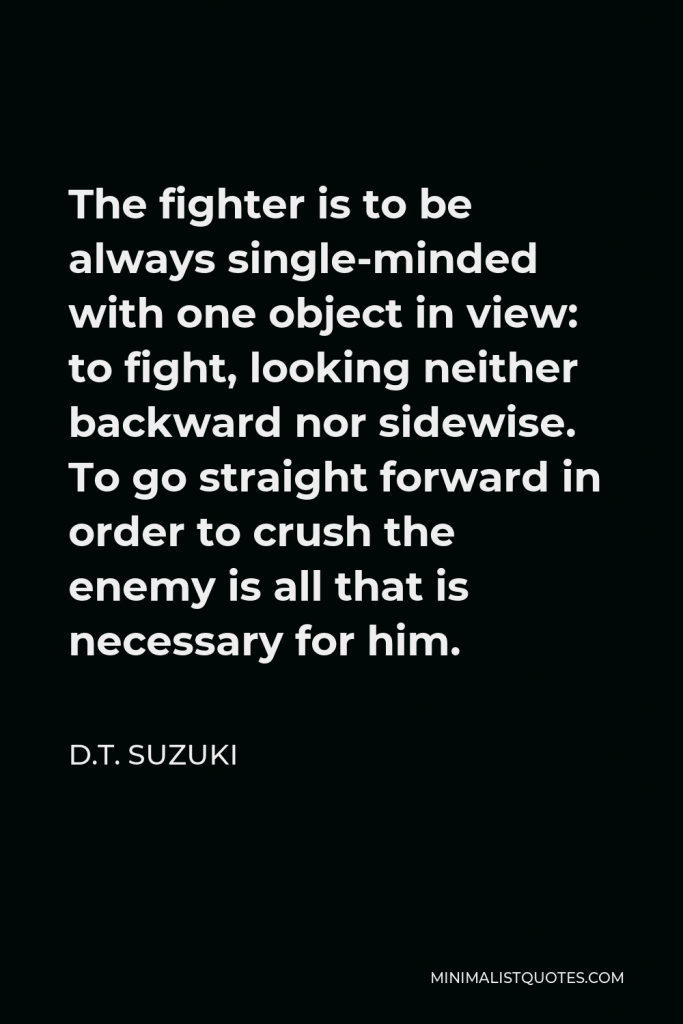

The fighter is to be always single-minded with one object in view: to fight, looking neither backward nor sidewise. To go straight forward in order to crush the enemy is all that is necessary for him.
D.T. SUZUKI -





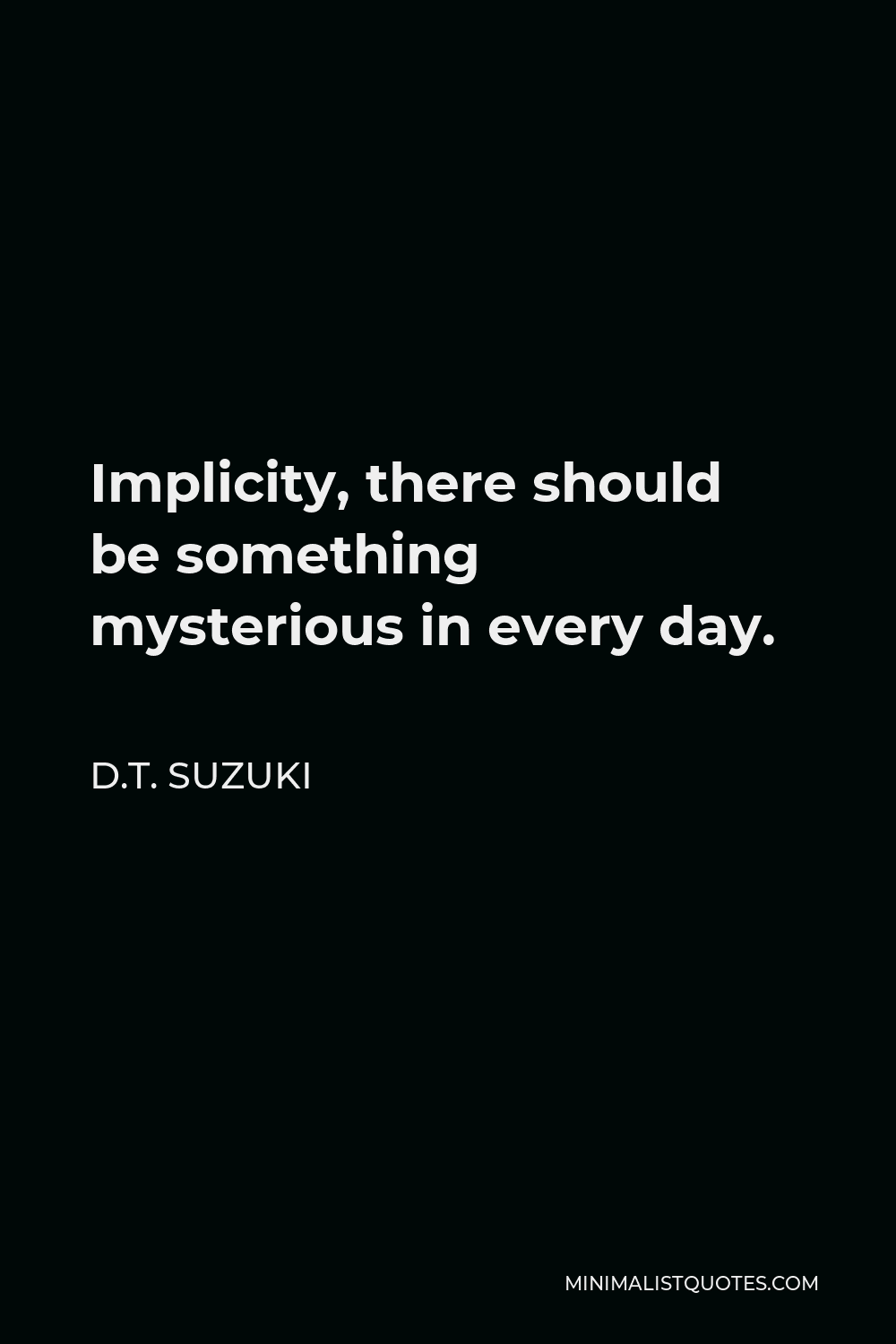
Implicity, there should be something mysterious in every day.
D.T. SUZUKI -






Dhyana is retaining one’s tranquil state of mind in any circumstance, unfavorable as well as favorable, and not being disturbed or frustrated even when adverse conditions present themselves one after another.
D.T. SUZUKI -





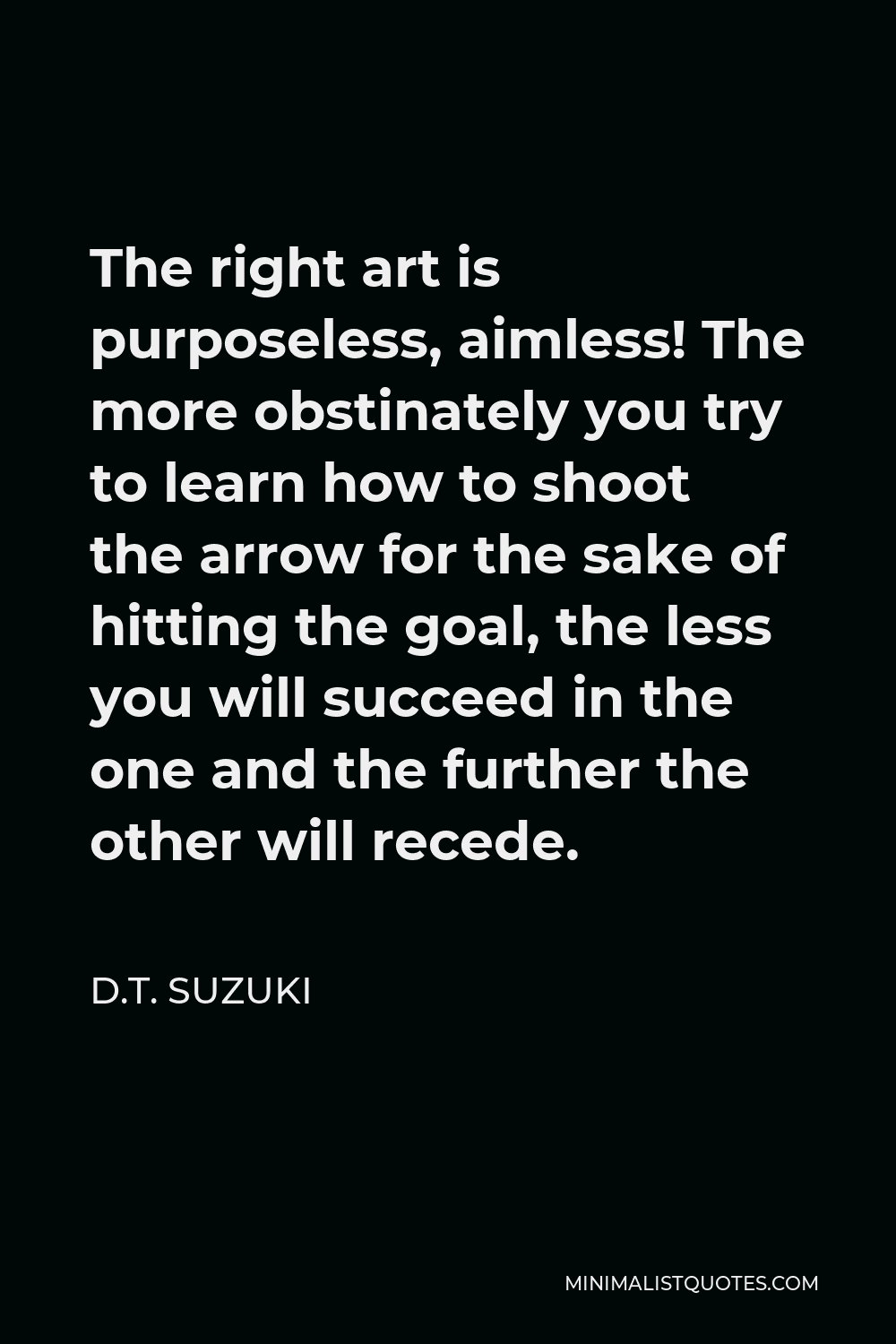
The right art is purposeless, aimless! The more obstinately you try to learn how to shoot the arrow for the sake of hitting the goal, the less you will succeed in the one and the further the other will recede.
D.T. SUZUKI -





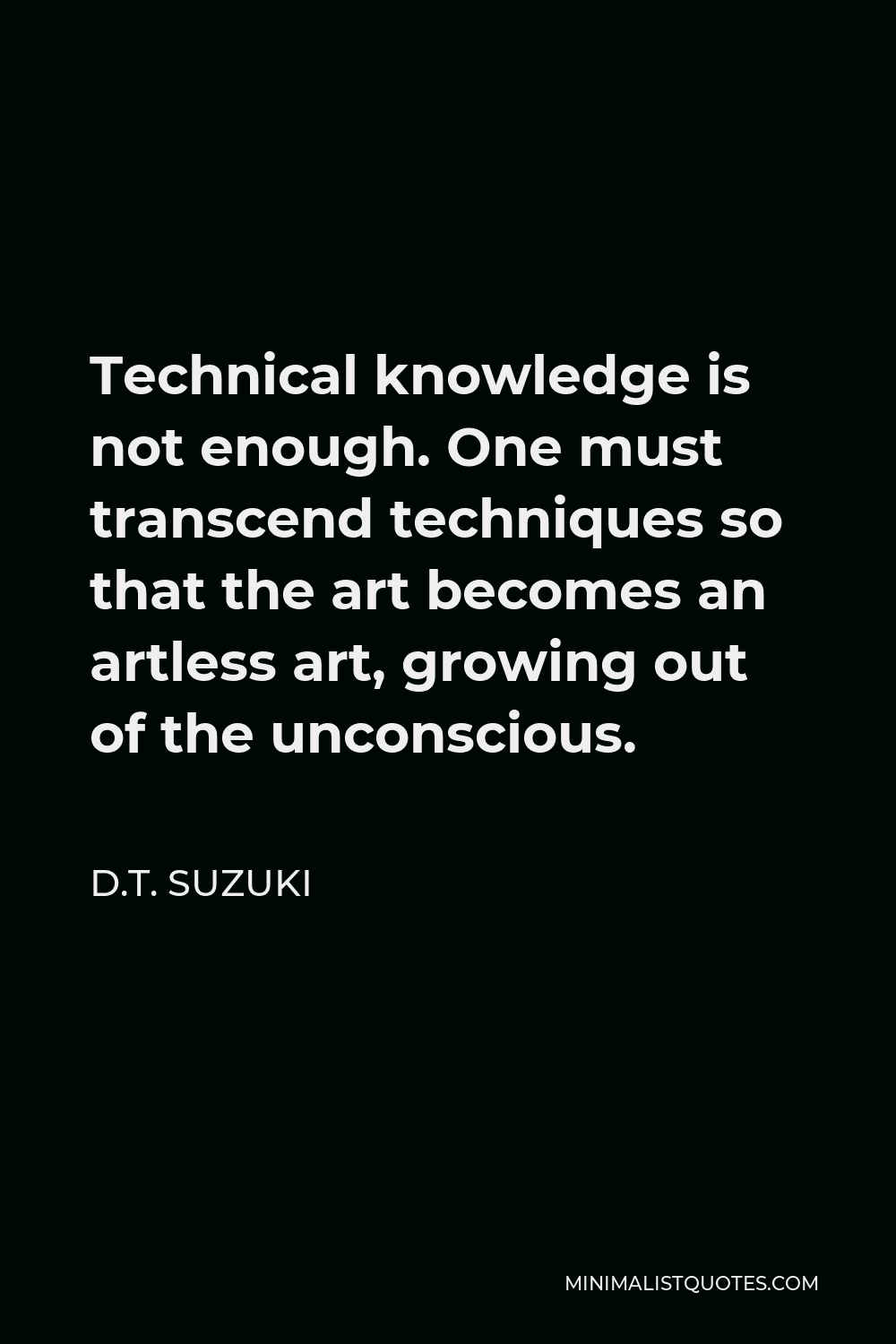
Technical knowledge is not enough. One must transcend techniques so that the art becomes an artless art, growing out of the unconscious.
D.T. SUZUKI -





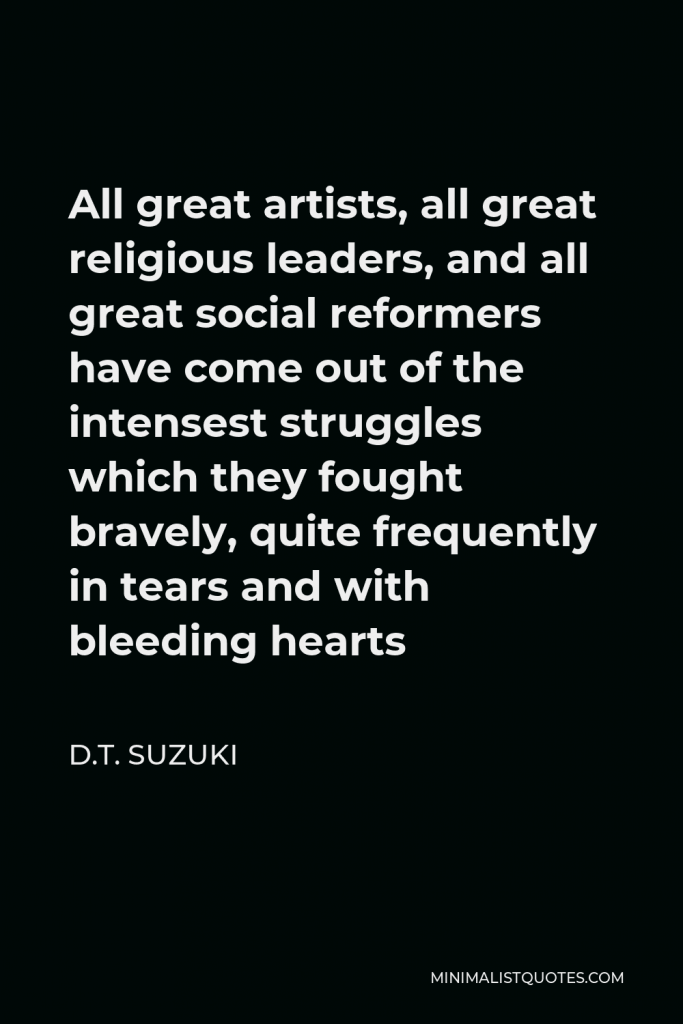

All great artists, all great religious leaders, and all great social reformers have come out of the intensest struggles which they fought bravely, quite frequently in tears and with bleeding hearts
D.T. SUZUKI -





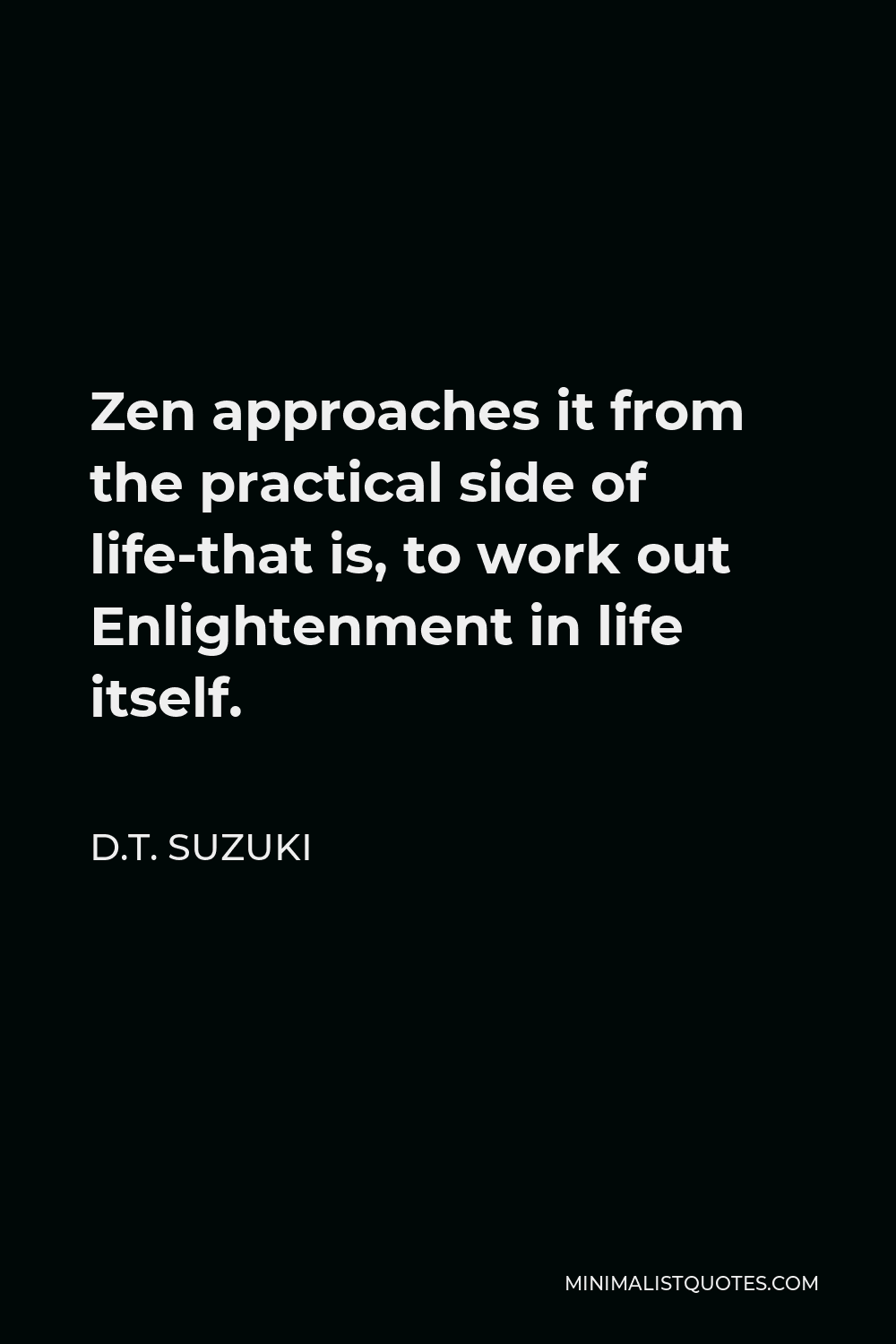
Zen approaches it from the practical side of life-that is, to work out Enlightenment in life itself.
D.T. SUZUKI -






The claim of the Zen followers that they are transmitting the essence of Buddhism is based on their belief that Zen takes hold of the enlivening spirit of the Buddha, stripped of all its historical and doctrinal garments.
D.T. SUZUKI -





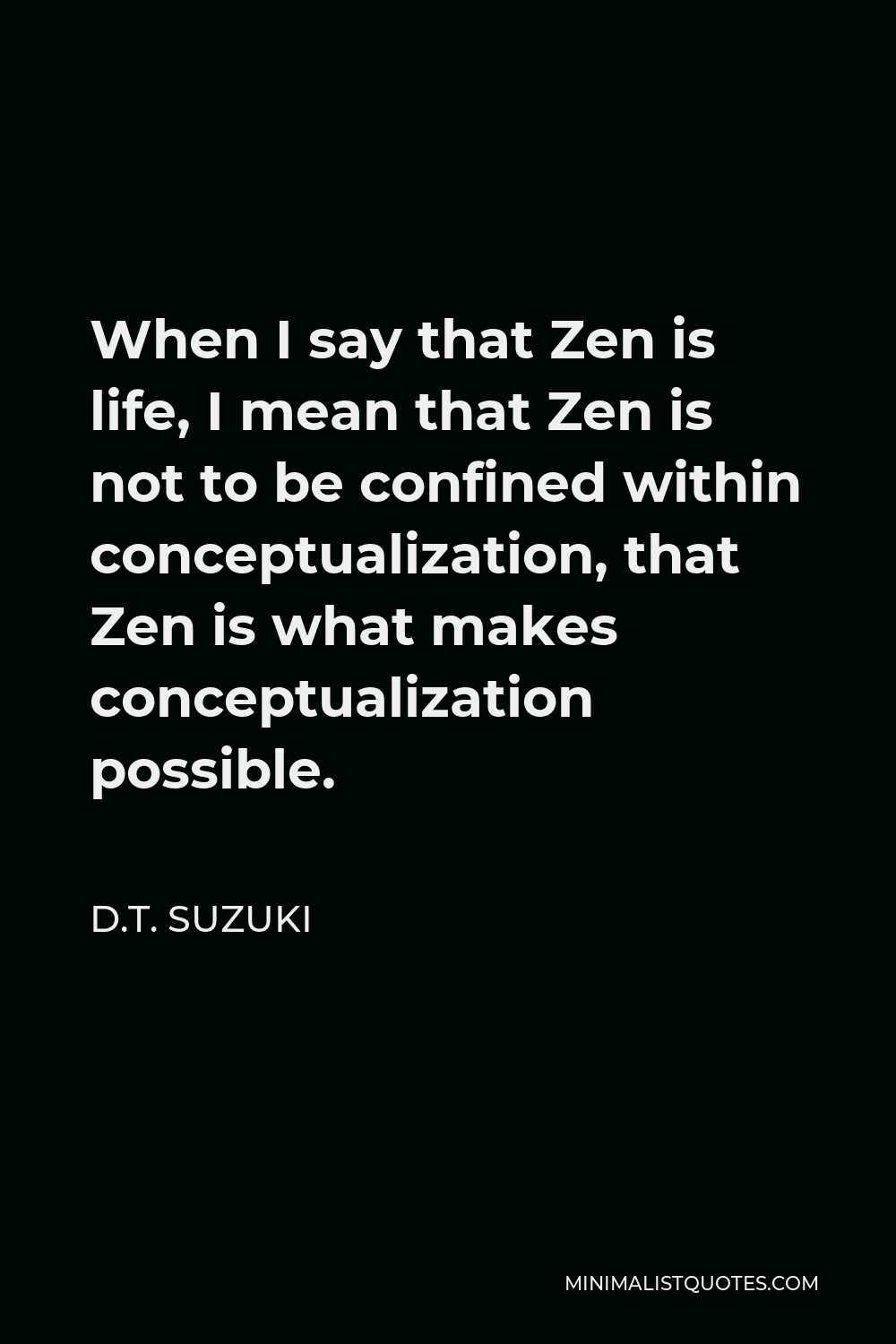
When I say that Zen is life, I mean that Zen is not to be confined within conceptualization, that Zen is what makes conceptualization possible.
D.T. SUZUKI -





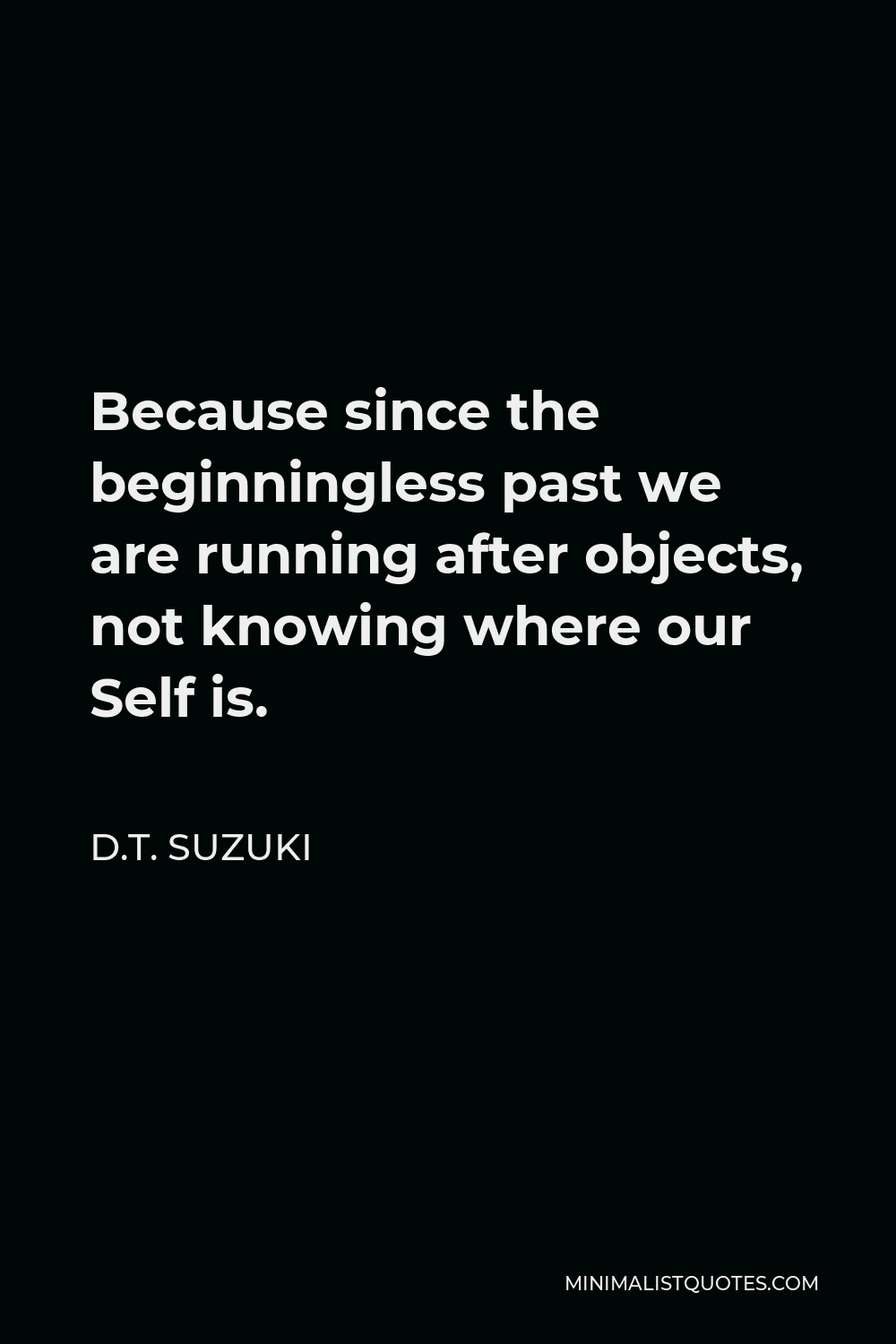
Because since the beginningless past we are running after objects, not knowing where our Self is.
D.T. SUZUKI -





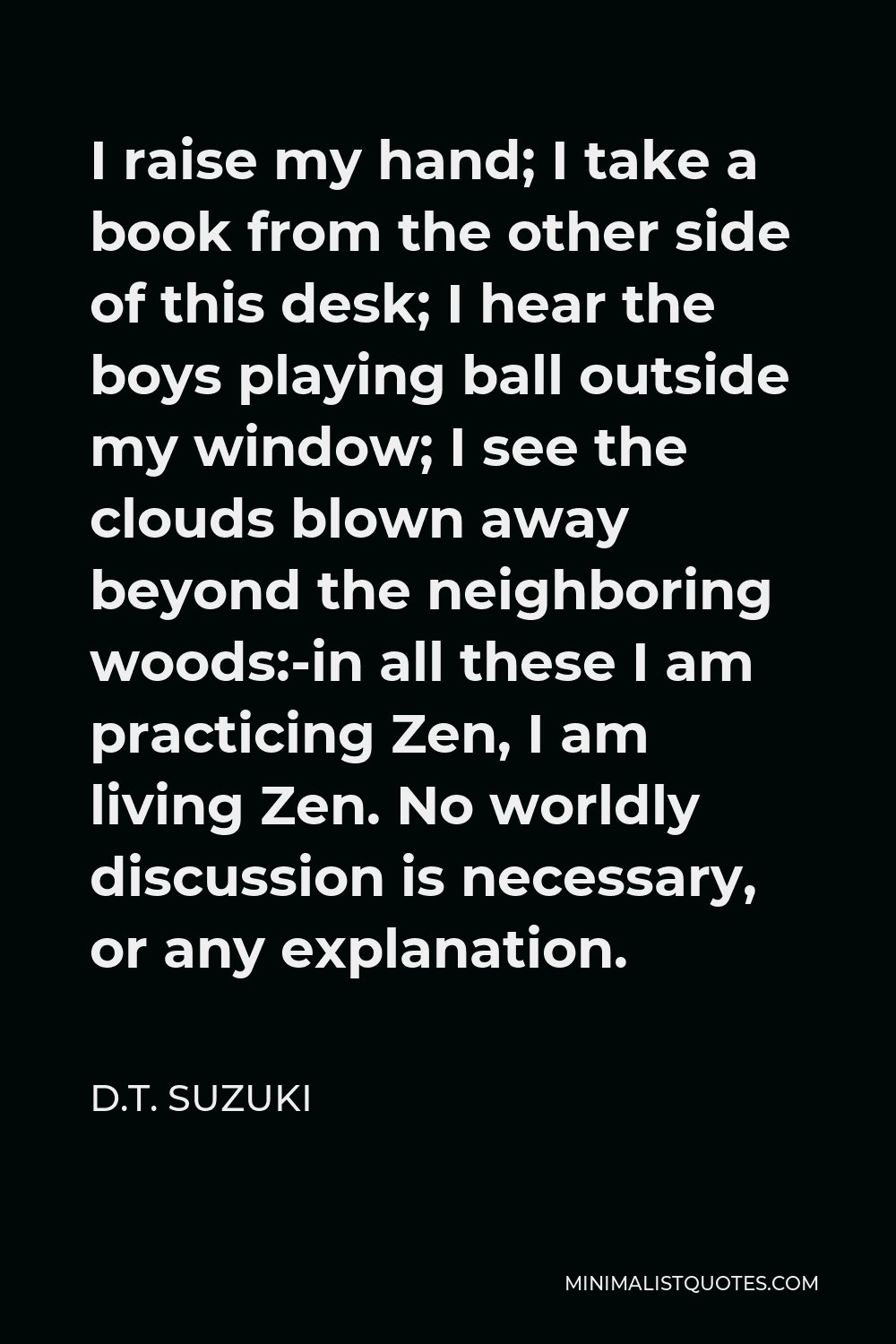
I raise my hand; I take a book from the other side of this desk; I hear the boys playing ball outside my window; I see the clouds blown away beyond the neighboring woods:-in all these I am practicing Zen, I am living Zen. No worldly discussion is necessary, or any explanation.
D.T. SUZUKI -





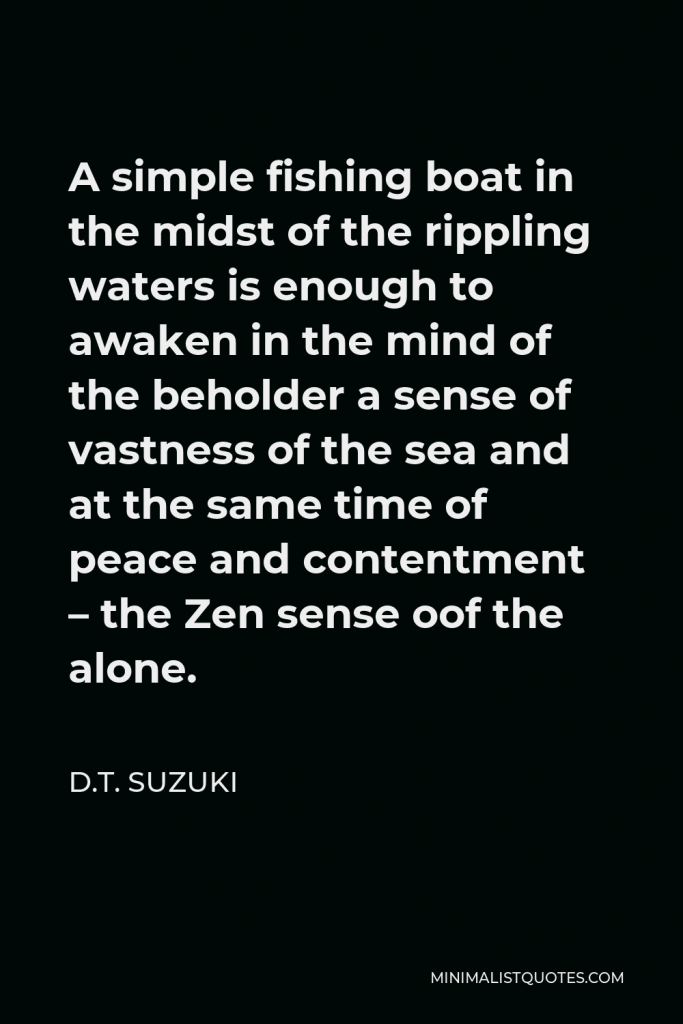

A simple fishing boat in the midst of the rippling waters is enough to awaken in the mind of the beholder a sense of vastness of the sea and at the same time of peace and contentment – the Zen sense oof the alone.
D.T. SUZUKI -





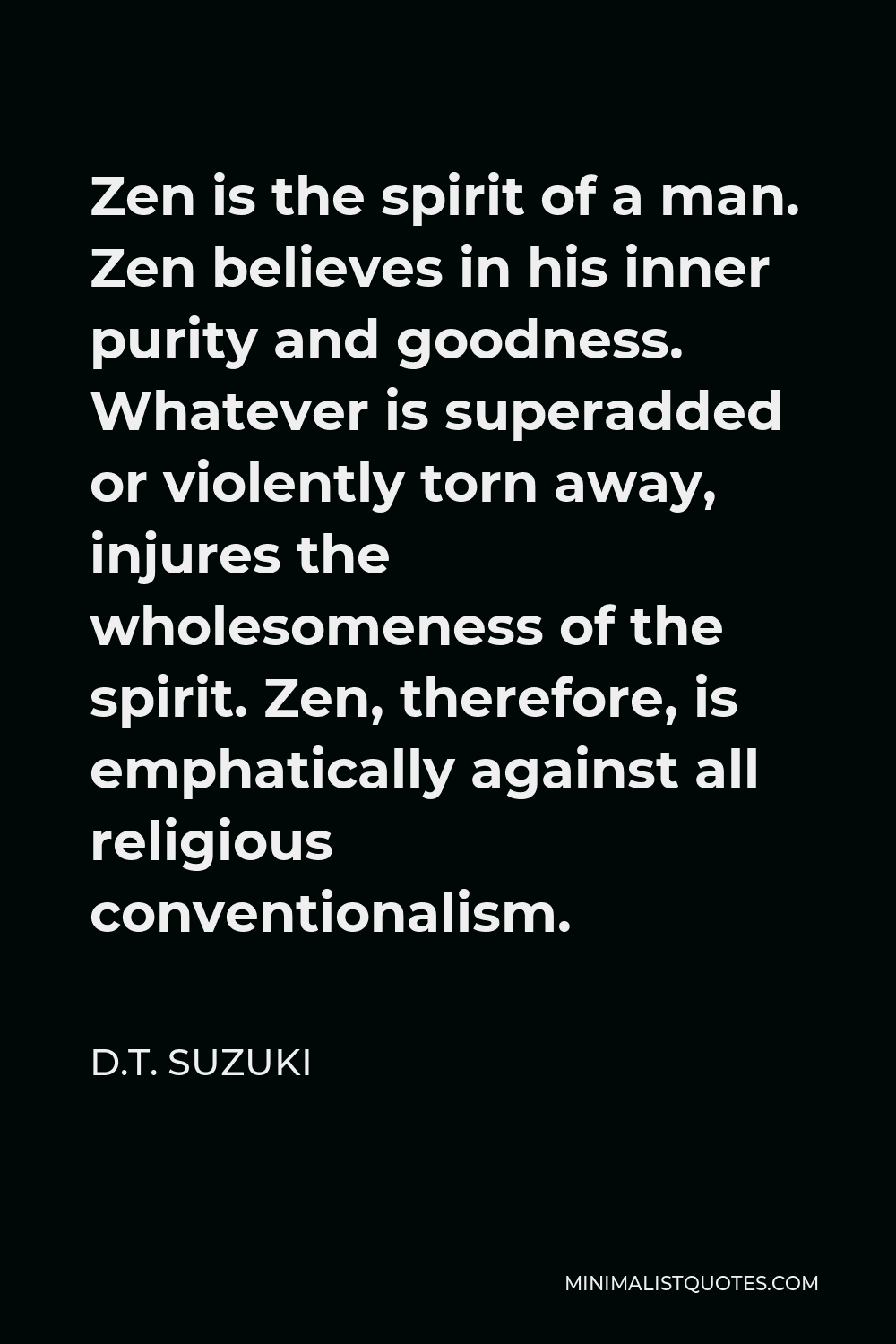
Zen is the spirit of a man. Zen believes in his inner purity and goodness. Whatever is superadded or violently torn away, injures the wholesomeness of the spirit. Zen, therefore, is emphatically against all religious conventionalism.
D.T. SUZUKI -





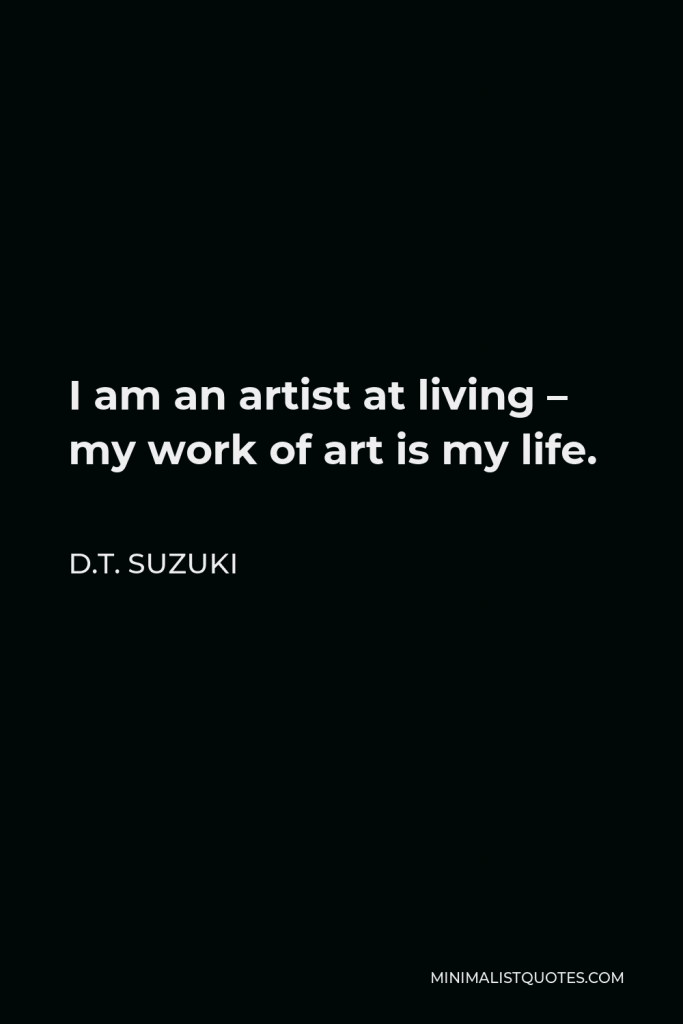

I am an artist at living – my work of art is my life.
D.T. SUZUKI
